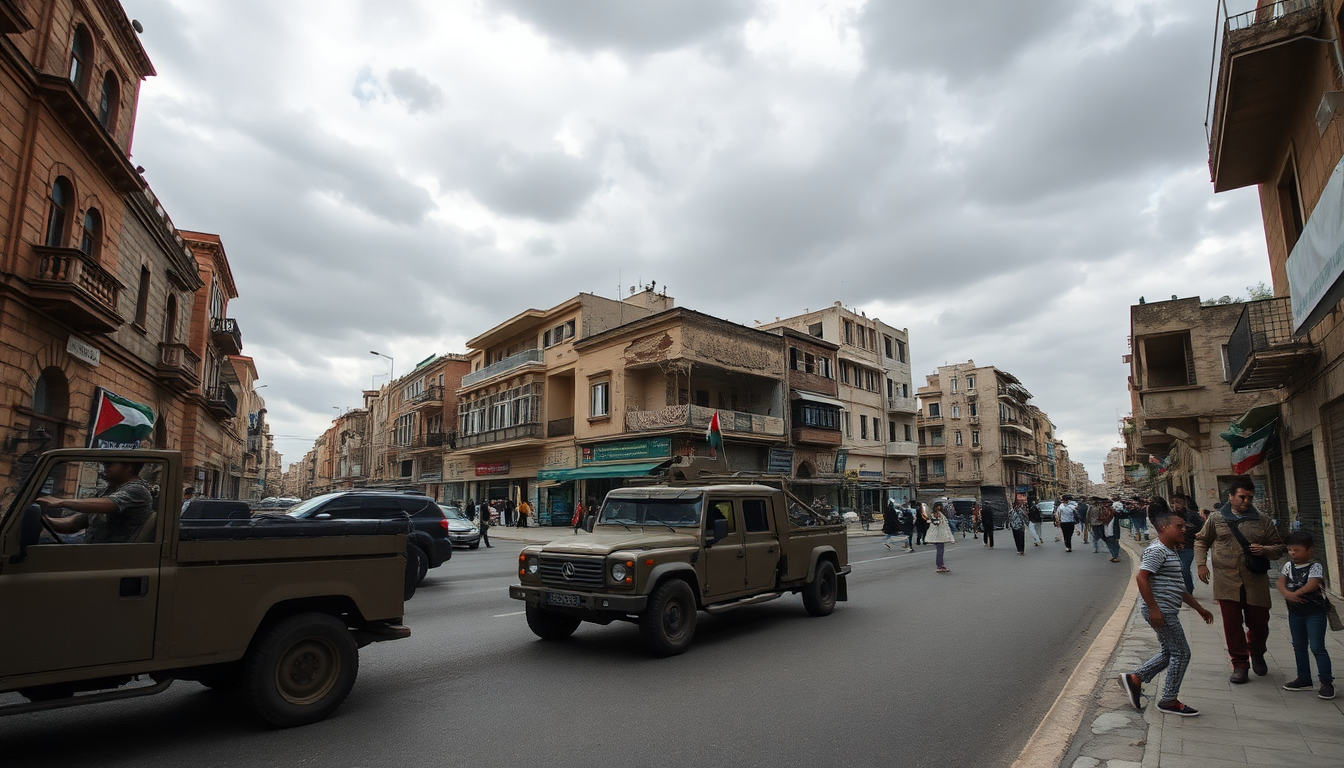Table of Contents
In light of the escalating violence in the occupied West Bank, the Israeli military has ramped up operations across several cities, including Nablus, Qalqilya, and Jenin. These raids are part of a larger military campaign that has intensified since the conflict in Gaza began, resulting in numerous arrests and further disrupting the lives of Palestinian residents. The implications of these actions are significant, as they shed light on the ongoing conflict and the humanitarian crisis unfolding in the region. What does this mean for the people living there?
Overview of Recent Military Operations
Recent reports indicate that over 50 Palestinians were arrested during military raids across various locations in the West Bank. According to the Palestinian Prisoners’ Media Office (ASRA), those arrested include children, activists, and former prisoners, reflecting a broad and indiscriminate approach to these operations. The Israeli military’s tactics have not only targeted residential areas but have also extended to educational institutions, further exacerbating the challenges faced by communities already grappling with instability. How can families navigate such a precarious environment?
Beyond arrests, the Israeli military has increased house demolitions, a measure that has drawn widespread international condemnation. This aggressive tactic displaces families and dismantles neighborhoods, adding to the turmoil within the West Bank. For many Palestinians, returning home has become a distant dream. Consider the recent situation in the Jenin camp, where residents were allowed to briefly return only to collect essential belongings before being forced to leave again. Isn’t it heartbreaking to think about losing your home in such a manner?
The Human Cost of Conflict
The personal experiences of those affected by these military actions are both profound and distressing. Nisreen Abu Zeina, a displaced resident of Jenin, shared the emotional toll of her circumstances. She described her harrowing experience of returning to her neighborhood under strict military oversight, where families were given just 40 minutes to gather their possessions from the ruins of their homes. Such narratives highlight the devastating impact of the ongoing conflict on individual lives and the broader Palestinian community. What would you do in her situation?
Moreover, the violence has not been one-sided. The recent death of a Palestinian man following a confrontation with Israeli forces underscores the volatility of the situation. In the aftermath of such incidents, groups like Hamas have framed these events as part of a larger struggle against occupation, which only serves to deepen the cycle of violence and retaliation. How can we break this cycle?
The Role of Israeli Settlers and Military Dynamics
Compounding the situation is the behavior of Israeli settlers, who have increasingly engaged in violent acts against Palestinian communities. Reports of settlers attacking villagers and damaging property have become more frequent, with the Israeli military often providing them protection. This troubling collaboration between settlers and military forces blurs the lines between civilian and military actions, heightening fears among the Palestinian populace. What does this mean for peace in the region?
In a concerning development, Israeli forces have facilitated the placement of mobile housing units for settlers in areas designated for Palestinian governance. This not only signifies a physical encroachment into Palestinian territory but also represents a strategic move to solidify the presence of settlers in contested regions, complicating any potential for peace and coexistence. As the situation evolves, what are the implications for both Palestinians and Israelis?
The international community is watching closely, yet the cycle of violence continues largely unchecked. It suggests a pressing need for renewed dialogue and intervention to tackle the underlying issues driving this conflict. Will there ever be a resolution, or are we destined to witness more turmoil?


